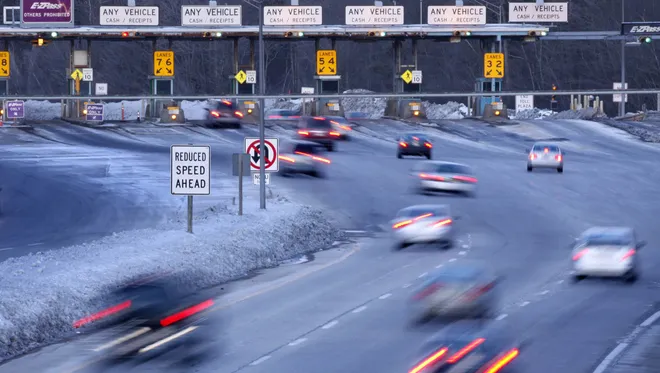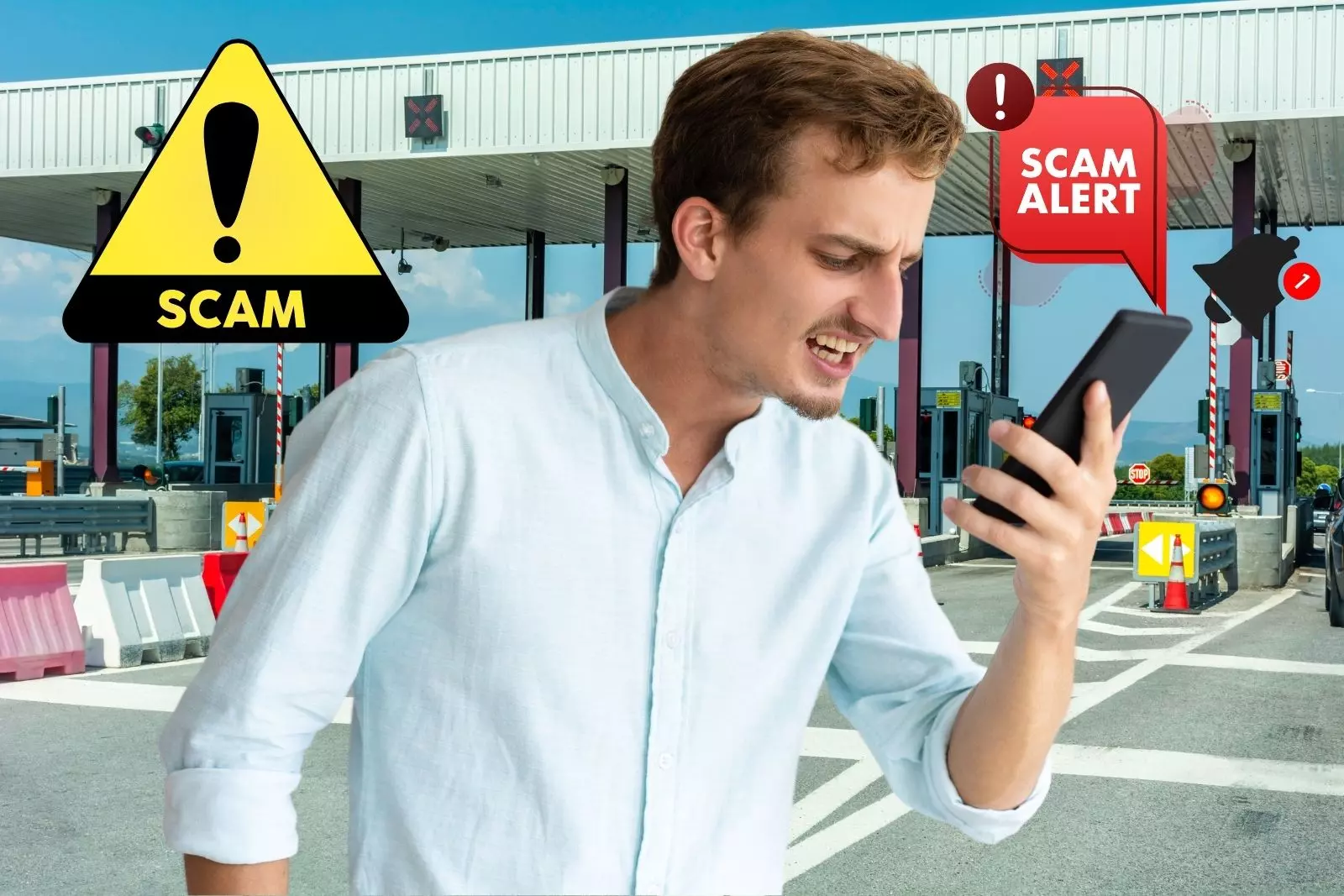In recent months, New Jersey motorists have been targeted by a sophisticated phishing scam involving fraudulent text messages that claim unpaid E-ZPass tolls.
These deceptive messages prompt recipients to click on malicious links, potentially compromising personal information and financial security. As the scam continues to evolve, it’s crucial for residents to stay informed and vigilant to protect themselves from falling victim to these cybercriminals.
Understanding the E-ZPass Phishing Scam
The scam typically involves text messages sent to drivers, alleging that they have unpaid tolls and threatening excessive fines or legal action if the balance isn’t settled promptly. These messages often cite minimal unpaid balances, such as $6 or $7, to appear legitimate and urgent.
The included links direct recipients to counterfeit websites designed to mimic official E-ZPass portals, where individuals are prompted to enter personal and financial information.
In some instances, the messages may come from phone numbers with international origins, such as the Philippines, further complicating efforts to trace and shut down the perpetrators.
The scammers exploit the trust associated with the E-ZPass brand and the likelihood that many recipients regularly use toll roads, increasing the chances of unsuspecting individuals responding to the fraudulent claims.
Official Responses and Warnings
State transportation officials and consumer protection agencies have been proactive in alerting the public about this scam.

The New York State Thruway Authority, for example, has issued warnings highlighting that legitimate E-ZPass communications will never request personal information via text or email.
They emphasize that official messages typically originate from a five-digit short code (e.g., 39769) and not from standard or international phone numbers.
New York Governor Kathy Hochul also addressed the issue, underscoring the importance of public awareness and caution. She stated that E-ZPass or Tolls by Mail would never solicit sensitive personal information through unsolicited texts or emails. Governor Hochul urged residents to remain vigilant and report any suspicious communications to the appropriate authorities.
Protecting Yourself from Phishing Scams
To safeguard against such phishing attempts, motorists are advised to:
- Delete Suspicious Messages: If you receive an unsolicited text or email claiming unpaid tolls, delete it immediately. Do not click on any links or download attachments from unknown or unverified sources.
- Verify Through Official Channels: If you’re concerned about potential toll issues, contact E-ZPass customer service directly using the phone number on their official website or your account statement. Avoid using contact information provided in unsolicited messages.
- Monitor Financial Statements: Regularly review your bank and credit card statements for unauthorized charges. Early detection is key to mitigating potential financial damage.
- Report Phishing Attempts: Notify the Federal Bureau of Investigation’s Internet Crime Complaint Center (IC3) or your state’s consumer protection agency about any phishing attempts. Reporting helps authorities track and combat these scams.
- Educate Yourself and Others: Stay informed about common phishing tactics and share this knowledge with friends and family, especially those who may be less familiar with digital communication risks.
The Broader Context: Phishing Scams on the Rise
Phishing scams have become increasingly prevalent, with cybercriminals employing more sophisticated techniques to deceive the public. The E-ZPass scam is a prime example of how attackers leverage well-known services and urgent scenarios to prompt hasty actions from recipients.
By creating a sense of urgency and legitimacy, scammers increase the likelihood of individuals divulging sensitive information without due diligence.
The rise in such scams underscores the need for continuous public education on cybersecurity best practices. Organizations and government agencies must collaborate to disseminate information promptly and effectively, ensuring that citizens are equipped to recognize and respond appropriately to phishing attempts.
Conclusion
As phishing scams targeting E-ZPass users in New Jersey and neighboring states become more sophisticated, it’s imperative for motorists to exercise caution and verify the authenticity of any communications regarding toll payments.
By staying informed and following recommended protective measures, individuals can reduce the risk of falling victim to these malicious schemes. Remember, legitimate agencies will never request sensitive personal information through unsolicited texts or emails. When in doubt, always reach out to official sources directly to confirm the validity of any claims.








